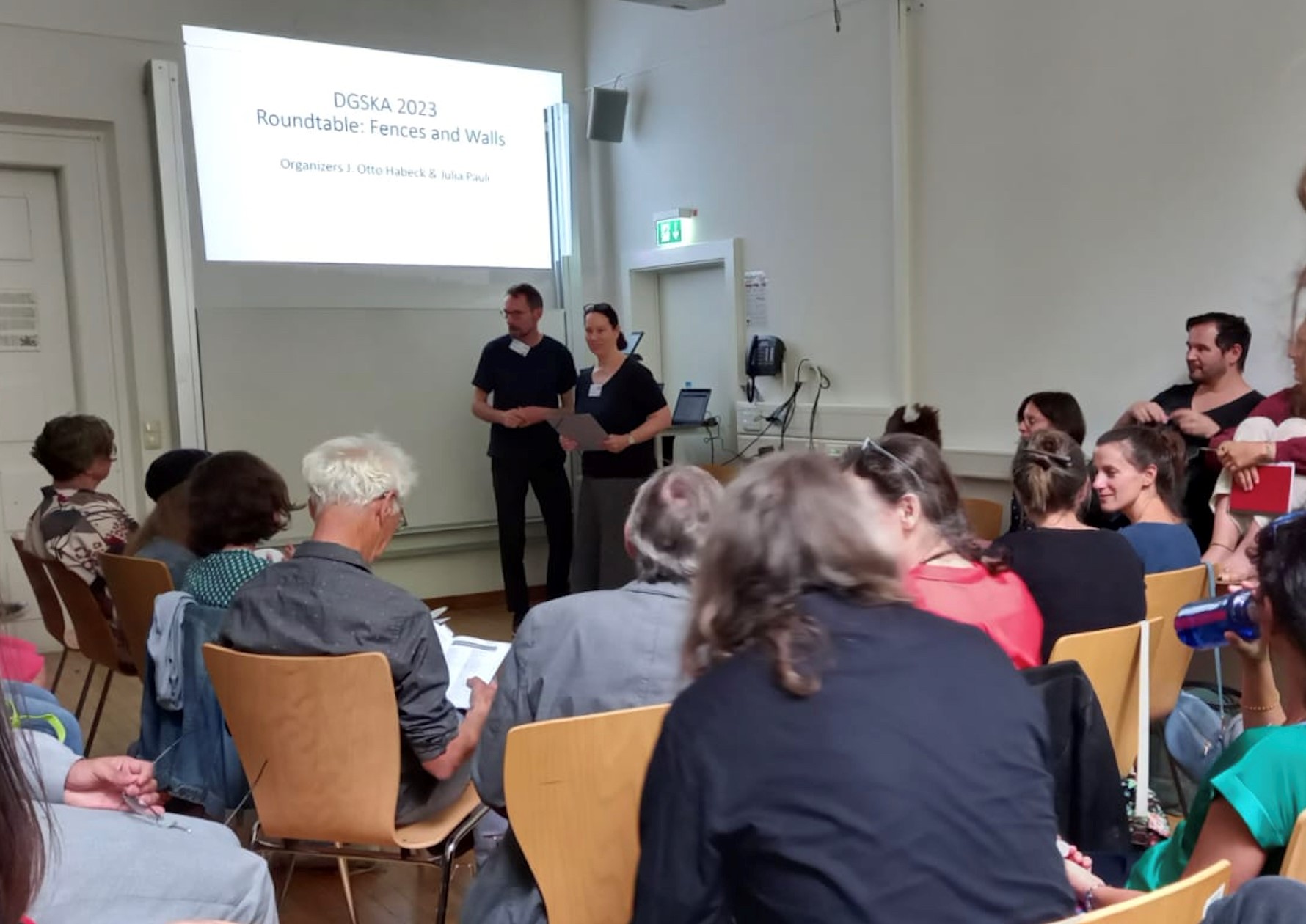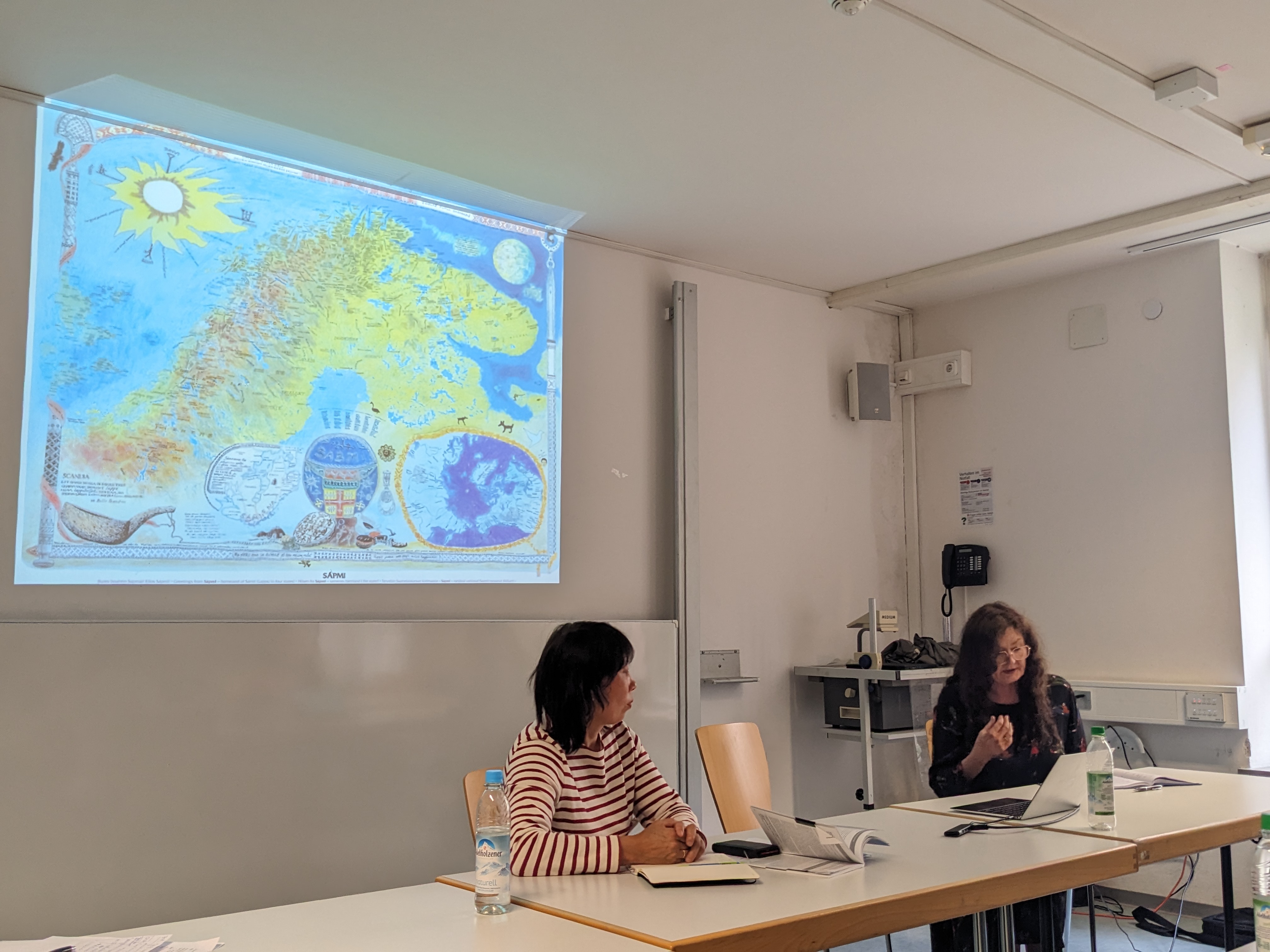Activities beyond the daily teaching routine
In addition to the regular teaching day, there are numerous joint activities of our students and staff. We would like to show you some of our past activities below. Please note that some information is available in German language only.
DGSKA 2023
*** Munich, 25-28 July 2023 *** Some twenty members of staff and students of our institute attended the biannual conference of the German Society for Social and Cultural Anthropology: this year in Munich. This year’s overall theme of the conference – Contested Knowledge – sparked manifold inspiring as well as divergent debates on the current conditions and policies of knowledge production.
- J. Otto Habeck and Julia Pauli organized a roundtable on the topic “Fences and Walls: Materializing and Contesting Everyday Borders”.
- Michael Schnegg and Jonas Bens convened a workshop entitled “Knowledge and Affect: Developing the Concepts of ‘Stimmung’ and ‘Atmosphere’ for Sociocultural Analysis”.
- Roza Laptander co-organized (with Gertrude Saxinger, Vienna) a workshop on “Co-Creation of Knowledges and Collaborative Research: Decolonial Methodologies in the Arctic and Beyond”.
 Introducing the roundtable “Fences and Walls: Materializing and Contesting Everyday Borders” at the DGSKA Conference, Munich, 27 July 2023.
Introducing the roundtable “Fences and Walls: Materializing and Contesting Everyday Borders” at the DGSKA Conference, Munich, 27 July 2023.Photo: Johann Olenitsch
The roundtable on Fences and Walls opened up manifold new perspectives on demarcations of the private and public. Eight speakers presented their ideas on how erstwhile commons are now subject to increased regulation and partitioning and how urban spaces become compartmentalized and securitized; however, speakers also showed how fences and walls undergo diverse practices of transgression. The organizers would like to thank the speakers as well as the many students from Universität Hamburg who took the opportunity to join.
In the workshop on “Knowledge and Affect”, participants discussed the potentials of developing the concepts of atmosphere and Stimmung/sentiment to understand culture and society from an ethnographic perspective. Presenters analysed such different contexts such as the role of ‘affective framing’ in a war crimes trial before the International Criminal Court, ‘atmospheres of mistrust’ in the countryside in the context of current authoritarian politics in Hungary, French right-wing academics resisting what they perceive as growing ‘sentiments of wokeness’, as well as the crucial relevance of the ‘right atmosphere’ in encounters between doctors and patients in a German sleep clinic. In the following discussion, participants debated what a perspective on atmosphere and sentiment might reveal and what it might obscure.
 Roza Laptander (Universität Hamburg) as co-chair (left) and Britt Kramvig (UiT Tromsø) as invited speaker (right) of the workshop "Co-Creation of Knowledges and Collaborative Research: Decolonial Methodologies in the Arctic and Beyond" at the GASCA Conference, Munich, 26 July 2023.
Roza Laptander (Universität Hamburg) as co-chair (left) and Britt Kramvig (UiT Tromsø) as invited speaker (right) of the workshop "Co-Creation of Knowledges and Collaborative Research: Decolonial Methodologies in the Arctic and Beyond" at the GASCA Conference, Munich, 26 July 2023.
Photo: Roza Laptander
Co-Creation of Knowledges and Collaborative Research: Among the most topical issues in Arctic Social Sciences is the question of how scientific approaches and epistemologies can be brought together with Indigenous knowledge. This workshop elicited a host of productive ideas on how decolonial methodologies can be designed as a win-win situation for both local communities and social scientific debates. Indigenous rightsholders emphasize that scientific agendas should not be limited to the consequences of climate change, but also address ongoing practices of resource extraction and top-down policy planning and implementation (including “green colonialism”). Speakers made clear that the task to develop equitable formats of knowledge-sharing is of relevance not only in the Arctic – indeed, it is of global importance.
See you at the next conference 2025 in Cologne – looking forward to it!
